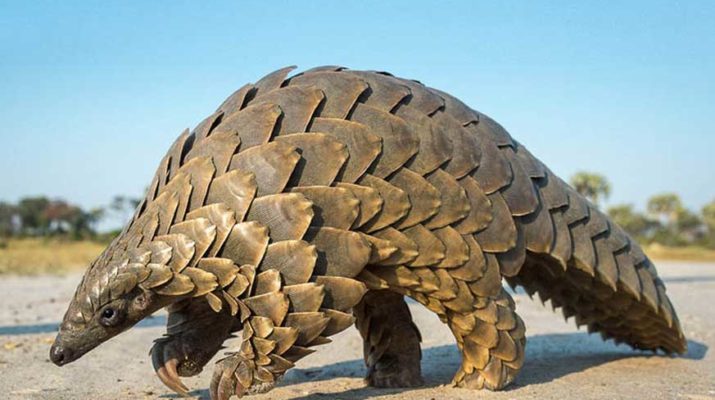-
Pangolin is only scaly mammal on the planet.
-
According to Convention on International Trade in Endangered Species (CITES), it is also the most illegally traded vertebrate within its class (Mammalia).
-
Of the eight species of pangolin worldwide, two are found in India. They are Chinese pangolin (manis pentadactyla), mostly found in northeast India and Indian pangolin (Manis crassicaudata).
-
Pangolins has large, overlapping scales on its body which act as armour.
-
It can also curl itself into ball as self-defence against predators.
-
The colour of its scales varies depending on colour of earth in its surroundings.
-
Pangolins is an insectivore, feeding on ants and termites, digging them out of mounds and logs using its long claws.
-
It is nocturnal and rests in deep burrows during the day.
-
Pangolins is smuggled for its scales as it believed that they possess magic or charms and have medicinal properties.
-
The scales serves as base component for indigenous (traditional) psychotropic substances.
-
China is main illicit hub (market) for smuggled scales of Pangolins, where they have huge demand for medicinal and magical purposes.
